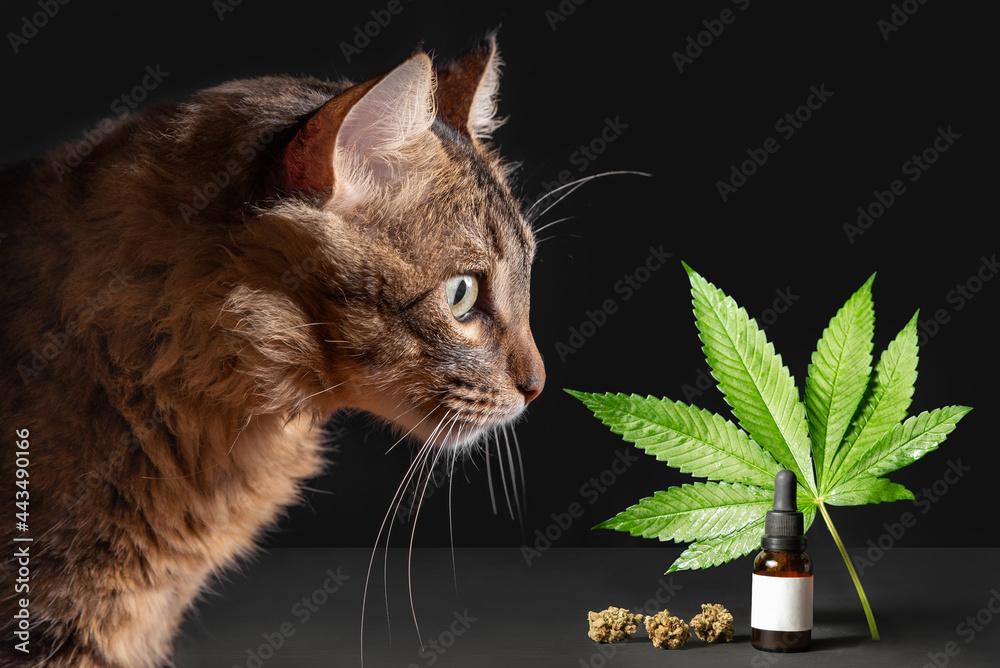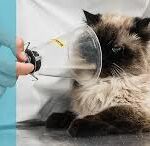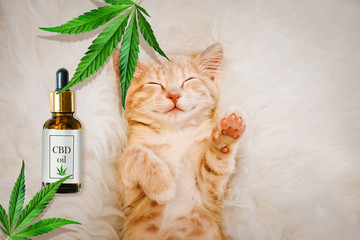Eucalyptus oil has gained popularity in recent years for its various benefits, from soothing respiratory issues to repelling insects. However, when it comes to our furry friends, particularly cats, caution is essential. Many pet owners wonder, “Is eucalyptus oil safe for cats?” In this comprehensive guide, we’ll delve into this question and provide you with all the information you need to keep your feline friend safe and healthy.
Table of Contents
Understanding
Eucalyptus oil is derived from the leaves of the eucalyptus tree, native to Australia. It’s known for its refreshing scent and therapeutic properties. This essential oil contains compounds like eucalyptol and alpha-terpineol, which contribute to its medicinal properties. People often use it for relieving respiratory issues, easing muscle pain, and even as a natural insect repellent.
Potential Benefits for Cats
While eucalyptus oil offers several benefits for humans, its effects on cats may differ. Some proponents claim that eucalyptus oil can help with respiratory issues in cats, such as congestion or coughing. However, it’s essential to approach these claims with caution and consult with a veterinarian before using eucalyptus oil on your cat.
Risks Associated with Oil for Cats
Despite its potential benefits, eucalyptus oil can pose significant risks to cats if used improperly. Cats are particularly sensitive to certain compounds found in essential oils, including eucalyptol. Ingesting even small amounts of eucalyptus oil can lead to poisoning in cats, causing symptoms such as vomiting, diarrhea, drooling, weakness, and difficulty breathing.

Safety Precautions When Using Oil Around Cats
If you decide to use eucalyptus oil in your home, it’s crucial to take necessary precautions to keep your cat safe. Here are some tips to follow:
- Dilution: Always dilute eucalyptus oil before using it around cats. Mixing it with a carrier oil, such as fractionated coconut oil, can help reduce its potency and minimize the risk of adverse effects.
- Avoid Direct Contact: Keep eucalyptus oil away from your cat’s fur, skin, or bedding to prevent accidental ingestion or inhalation.
- Ventilation: Ensure proper ventilation when using eucalyptus oil in your home. Open windows and doors to allow fresh air to circulate and prevent the buildup of fumes.
- Consult a Veterinarian: Before using any essential oil around your cat, consult with a veterinarian to ensure it’s safe for your pet’s specific health needs.
Alternative Products for Cats
If you’re concerned about the risks associated with oil, there are plenty of alternative products available that are specifically formulated for use around cats. Look for pet-safe options that are free from harmful chemicals and designed to cater to your cat’s unique needs.
Research on Cats
Research into the effects of eucalyptus oil on cats is limited but warrants attention due to the potential risks involved. While there is anecdotal evidence supporting its use for certain purposes, such as respiratory support, scientific studies specifically focusing on cats are scarce.
One study published in the Journal of Veterinary Emergency and Critical Care highlighted the toxicity of essential oils, including oil, in cats. The study reported cases of cats experiencing adverse reactions, such as drooling, vomiting, and respiratory distress, after exposure to various essential oils. These findings underscore the importance of exercising caution when using eucalyptus oil around cats.
Another research article in the Journal of Feline Medicine and Surgery discussed the potential neurotoxic effects of essential oils in cats. While the study primarily focused on lavender oil, it emphasized the need for further research into the safety of essential oils, including eucalyptus oil, for feline companions.
Despite the lack of comprehensive studies on eucalyptus oil specifically, veterinarians and pet experts advise against its use around cats due to their unique physiology and sensitivity to certain substances.
Natural Alternatives for Cats
While oil may pose risks to cats, there are several natural alternatives that pet owners can explore to address common concerns without endangering their furry friends.
- Catnip: Catnip is a safe and non-toxic herb that many cats enjoy. It can be used to alleviate stress, promote relaxation, and encourage playfulness in cats.
- Chamomile: Chamomile tea, when properly diluted, can have calming effects on cats and may help soothe digestive issues or nervousness.
- Valerian Root: Valerian root is another herb known for its calming properties in cats. It can be used to reduce anxiety and promote relaxation, particularly in stressful situations.
- Hydrosols: Hydrosols, or floral waters, are gentler alternatives to essential oils that can be safely used around cats. Options like rose or lavender hydrosols can offer subtle aromatherapy benefits without the risk of toxicity.
By exploring these natural alternatives, pet owners can provide their cats with safe and effective solutions for various health and behavioral concerns without exposing them to potential risks associated with eucalyptus oil.
Consulting with a Veterinarian
Ultimately, the decision to use eucalyptus oil or any other product around cats should be made in consultation with a veterinarian. Veterinarians can provide personalized guidance based on your cat’s health status, age, and any underlying medical conditions.
During your veterinary consultation, be sure to discuss:
- Your cat’s specific health needs and sensitivities
- Any existing respiratory issues or allergies
- Previous experiences with essential oils or other aromatic substances
- Alternative options for addressing your cat’s needs while minimizing risks
By working closely with your veterinarian, you can develop a safe and effective plan for supporting your cat’s health and well-being while avoiding potential hazards associated with eucalyptus oil and other essential oils.
Understanding Feline Sensitivities
Cats possess unique physiological differences compared to humans and other animals, making them particularly sensitive to certain substances, including essential oils like eucalyptus oil. Their livers lack certain enzymes necessary for metabolizing and detoxifying these compounds, increasing their susceptibility to adverse reactions.
One crucial factor to consider is cats’ grooming behavior. Cats are meticulous groomers and may inadvertently ingest substances present on their fur or surroundings. Therefore, even if eucalyptus oil is applied topically or diffused in the air, there’s a risk of ingestion during grooming, potentially leading to toxicity.
Moreover, cats have a heightened sense of smell, with scent receptors that are more sensitive than those of humans. While eucalyptus oil may have a pleasant aroma to us, it could be overpowering or irritating to cats, causing discomfort or respiratory issues.

Potential Risks of Eucalyptus Oil Exposure
Exposure to eucalyptus oil can result in a range of adverse effects in cats, ranging from mild symptoms to severe toxicity. Inhalation of eucalyptus oil vapors may irritate the delicate lining of the respiratory tract, leading to coughing, wheezing, or difficulty breathing.
Ingestion of eucalyptus oil, whether through grooming or direct consumption, poses a more significant risk of toxicity. The compounds present in the oil, such as eucalyptol, can cause gastrointestinal upset, including vomiting, diarrhea, and abdominal pain. In severe cases, ingestion of eucalyptus oil can lead to central nervous system depression, seizures, or even organ damage.
Recognizing the Signs of Eucalyptus Oil Toxicity
It’s essential for cat owners to be vigilant and aware of the signs of eucalyptus oil toxicity in their pets. Early recognition of symptoms can prompt prompt intervention and potentially prevent serious complications. Some common signs of oil toxicity in cats include:
- Excessive drooling or salivation
- Lethargy or weakness
- Loss of appetite
- Difficulty breathing
- Tremors or seizures
If you suspect that your cat has been exposed to eucalyptus oil or is displaying any concerning symptoms, seek veterinary assistance immediately. Prompt treatment can make a significant difference in the outcome and speed up your cat’s recovery.

Creating a Safe Environment for Cats
To protect your feline companion from potential hazards associated with eucalyptus oil and other essential oils, it’s crucial to create a safe and cat-friendly environment. Here are some tips to consider:
- Store Essential Oils Securely: Keep eucalyptus oil and other essential oils out of reach of curious cats. Store them in a secure location, such as a locked cabinet, to prevent accidental exposure.
- Use Alternative Products: Opt for cat-safe alternatives for scenting your home or addressing common concerns like stress or odor control. Products specifically formulated for cats are less likely to contain ingredients that could be harmful to your pet.
- Provide Enrichment: Enrich your cat’s environment with stimulating toys, scratching posts, and interactive play to keep them mentally and physically engaged. A happy and fulfilled cat is less likely to seek out potentially harmful substances.
By taking proactive measures to safeguard your cat’s well-being, you can create a nurturing and supportive environment where they can thrive without unnecessary risks or exposure to eucalyptus oil and other potentially hazardous substances.
Conclusion
In conclusion, while oil offers several potential benefits, it’s essential to proceed with caution when using it around cats. While some cats may tolerate eucalyptus oil without any adverse effects, others may be more sensitive and susceptible to poisoning. Always prioritize your cat’s safety and well-being by consulting with a veterinarian before introducing any new products into your home. With proper precautions and awareness, you can enjoy the benefits of eucalyptus oil while keeping your feline friend safe and healthy.





























































